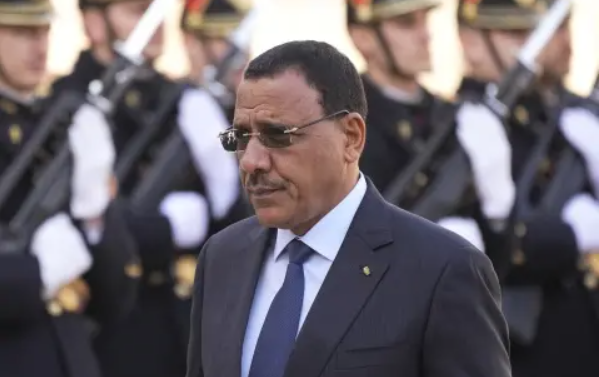Ex-President Mohamed Bazoum’s Crucial Case: A Demand for Justice in Niger’s Trials
On June 14, the highest court in Niger will decide whether or not to remove former president Mohamed Bazoum’s immunity from prosecution, which is a crucial decision. This change comes after proceedings that were heavily criticized for not following due process requirements. The Nigerian government must drop this controversial issue and ensure that Bazoum gets a fair trial.
After a military coup deposed his government last July, Bazoum was confined to the presidential mansion. In August, the newly formed junta declared its plan to bring charges against him for “high treason” and threatening national security. Nevertheless, a judge has not heard Bazoum’s case. In April, moves were made to remove his presidential immunity so that he can face charges for offenses allegedly committed while in office beginning in 2021.
of the aftermath of the coup, the junta replaced the Council of State and the Court of Cassation with the State Court, making it the supreme court of Niger. Significant flaws have marred the procedures of this recently established court, including breaches of Bazoum’s rights to contact with his legal counsel, submit evidence, and be heard by an impartial judge. Bazoum will also be unable to appeal the decision if he takes the matter to the state court.
Concerns over the credibility of the court’s decisions have been voiced by human rights groups in Niger. How can a court that has its president chosen by the president be seen as an independent and unbiased entity? asked one lawyer.
There have been major challenges for Bazoum’s legal staff. Human Rights Watch claims that since October, they have been cut off from communicating with him and have had restricted access to crucial case documents. “Authorities amended article 141 of the court statute regarding access to case information while the case was pending, obstructing our ability to consult key documents,” Moussa Coulibaly, one of Bazoum’s lawyers, expressed the difficulty of the situation. In the middle of a game, changing the rules is unfair.
As a means of redress, Bazoum petitioned the ECOWAS Community Court of Justice in September, alleging human rights breaches committed against him and his family while in jail. Bazoum was ordered released in December after an ECOWAS court found that he was being held arbitrarily.
Access to legal representation, sufficient time to prepare a defense, and the opportunity to appeal to a higher judicial authority are crucial components of a fair hearing in all legal procedures, as outlined in the Principles on the opportunity to a Fair Trial of the African Union.
The government of Niger should promptly end the charges against Bazoum in accordance with these principles. All valid accusations must be brought before ordinary criminal courts in a manner consistent with the right to a fair trial. To preserve human rights and Niger’s judicial system, it is essential to provide justice and respect the rule of law.


















